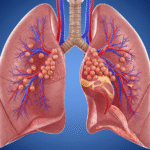Sexual health is an essential aspect of overall well-being, yet it’s often overlooked or stigmatized, especially when it comes to women. From adolescence through menopause and beyond, women face unique challenges that deserve open discussion, education, and proper medical care. Addressing women’s sexual health matters not only improves quality of life but also strengthens physical, emotional, and relational health.
Understanding Women’s Sexual Health
Women’s sexual health encompasses a wide range of issues, including menstrual health, contraception, pregnancy, menopause, sexually transmitted infections (STIs), sexual function, and emotional well-being. Unfortunately, societal taboos and lack of awareness often prevent women from seeking the care they need.
Common Sexual Health Concerns in Women
- Menstrual and Hormonal Issues – Irregular periods, painful cramps, or hormonal imbalances can affect both fertility and daily life.
- Sexually Transmitted Infections (STIs) – Women are at increased risk of complications from untreated STIs, which can lead to infertility or chronic pain.
- Contraception and Family Planning – Access to safe, effective birth control allows women to make informed choices about their reproductive health.
- Menopause – Hormonal changes during menopause can bring hot flashes, vaginal dryness, and decreased libido, which impact sexual health and comfort.
- Sexual Dysfunction – Conditions like low desire, pain during intercourse, or difficulty achieving orgasm are more common than many realize.
Why Women’s Sexual Health Matters
- Physical Health: Proper care helps prevent infections, reproductive complications, and chronic conditions.
- Mental Well-being: Addressing sexual health concerns can reduce anxiety, depression, and relationship stress.
- Empowerment: Knowledge about sexual health enables women to make informed choices and advocate for themselves in healthcare settings.
Tips for Supporting Women’s Sexual Health
- Regular Checkups: Routine gynecological exams and screenings for STIs are vital.
- Open Conversations: Breaking the stigma around sexual health encourages women to seek help when needed.
- Safe Practices: Using protection and practicing safe sex reduces risks of STIs.
- Healthy Lifestyle: Proper nutrition, exercise, and stress management positively impact sexual function and overall health.
- Access to Resources: Women should be informed about contraception options, counseling, and support services.
Final Thoughts
Women’s sexual health is more than just a medical issue—it’s about dignity, empowerment, and quality of life. By creating safe spaces for conversations, increasing access to care, and encouraging education, society can ensure that women receive the attention and support they deserve.











